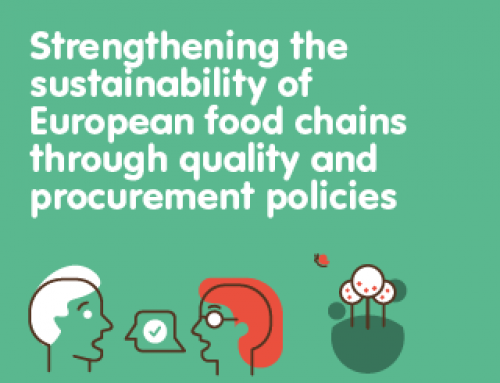Responsible partner: UNIPR
Authors: Arfini, F., Antonioli, F., Bellassen, V., Brennan, M., Fumel, M., Gorton, M., Hartmann, M., Hawes, D. R., Mancini, M. C., Roos, G., Schüssler, J., Tocco, B., Torjusen, H., Tregear, A., Veneziani, M., Virginie, A., Vittersø, G., Yeh, C.
Date of publication: November 2016
This paper provides a conceptual framework for understanding the social, environmental and economic impact of FQS, SFSC and varying PSFP policies on agri-food supply chain participants and rural territories. Based on previous theories and methodological approaches on the relationships between agri-food chains and the territory, this conceptual framework brings together state-of-the-art insights and findings on Local Agri-food Systems, public goods, conventions theory, governance and neo-endogenous rural development. It defines variables and factors that characterize the relationships between territory and food chains which, in turn, influence the sustainability of the rural areas. As the perceptions and conceptions of quality food and sustainable food products are structured through different spheres depending on the perspectives of actors – farmers, processors, distributors/retailers, consumers, regulators, public authorities, etc. – this paper aims to systematize these perspectives through a common theoretical approach. Therefore, the reviews of the existing literature relate to: i. the impact of FQS on scheme participants and rural territories, ii. the impact of varying models of PSFP for school meals on nutritional outcomes and sustainability of rural territories, iii. the impact of SFSC on rural territories, and iv. consumers’ food practices and confidence regarding food quality labelling schemes.






